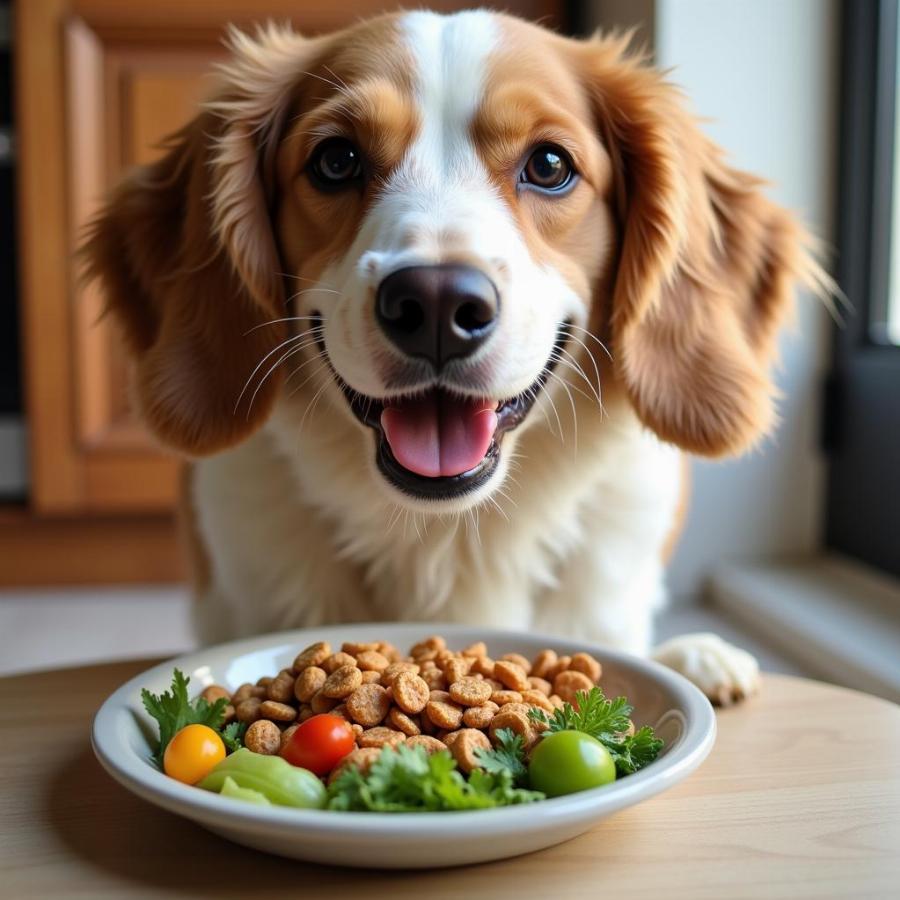Two hands corn dogs have taken the snack world by storm, but what’s the connection to our furry friends at Beaut Dogs? While “two hands corn dogs menu” might initially seem unrelated to the world of canine companionship, the imagery of holding a delicious treat in two hands reminds us of the joy and responsibility that comes with caring for a dog. This article explores that connection, focusing on the importance of providing healthy and balanced nutrition for your canine companion. Just as we carefully choose what we eat, we must be equally mindful of what we feed our dogs. So, while we enjoy our corn dogs, let’s delve into the essential nutritional needs of our four-legged family members.
Understanding Your Dog’s Nutritional Needs
Proper nutrition is the foundation of a happy and healthy life for your dog. It’s not just about filling their bowls; it’s about providing them with the right balance of nutrients to support their growth, development, and overall well-being. This includes proteins, fats, carbohydrates, vitamins, and minerals. Each nutrient plays a crucial role, from building strong muscles and bones to maintaining a healthy immune system.
A balanced diet can also prevent many common health issues in dogs, such as obesity, joint problems, and skin allergies. Just as humans benefit from a variety of foods, dogs also thrive on a diverse diet. This doesn’t mean sharing your two hands corn dog, though!
 Dog Enjoying a Balanced Meal
Dog Enjoying a Balanced Meal
Choosing the Right Food for Your Dog
With countless dog food options available, selecting the right one can feel overwhelming. Consider factors such as your dog’s age, breed, size, activity level, and any specific health conditions. Puppies require different nutrients than adult dogs, and senior dogs have unique needs as well.
Always check the ingredient list and look for high-quality protein sources, healthy fats, and digestible carbohydrates. Avoid foods with artificial colors, flavors, and preservatives. Consulting with your veterinarian is always recommended to determine the best dietary plan for your individual dog. They can help you navigate the various options and recommend foods that address your dog’s specific needs.
The Dangers of Human Food for Dogs
While it might be tempting to share your two hands corn dog with your furry friend, many human foods are toxic to dogs. Foods like chocolate, grapes, raisins, onions, and garlic can cause serious health problems and should never be given to your dog. Even seemingly harmless foods like corn dogs can be high in fat and sodium, leading to digestive upset or long-term health issues like obesity.
Homemade Dog Food vs. Commercial Dog Food
Many dog owners are exploring homemade dog food options. While this allows for complete control over ingredients, it requires careful planning and balancing of nutrients to ensure your dog’s dietary needs are met. If you’re considering a homemade diet, consult with a veterinary nutritionist to create a balanced and safe meal plan.
Commercial dog foods, on the other hand, are formulated to meet specific nutritional requirements. They offer convenience and often come in various flavors and textures to suit different preferences. Choosing a reputable brand that adheres to strict quality control standards is essential.
What If My Dog Has Allergies?
Food allergies in dogs can manifest in various ways, including skin irritation, itching, digestive problems, and ear infections. If you suspect your dog has a food allergy, consult your veterinarian for proper diagnosis and dietary recommendations. They may suggest an elimination diet or recommend hypoallergenic dog food options.
Conclusion
Just as we enjoy choosing delicious snacks like two hands corn dogs, we should prioritize our dogs’ nutritional needs. Providing them with a balanced and healthy diet is crucial for their overall health and well-being. Remember to consult with your veterinarian for personalized dietary advice and choose the best food for your furry friend. By prioritizing their nutritional needs, we can ensure they live long, happy, and healthy lives by our sides.
FAQs:
- How often should I feed my dog? This depends on your dog’s age, breed, and activity level. Consult with your veterinarian for personalized recommendations.
- What are the signs of a food allergy in dogs? Common signs include itching, skin irritation, digestive problems, and ear infections.
- Is it okay to give my dog table scraps? Many human foods are toxic to dogs. It’s best to stick to a balanced dog food diet.
- How do I choose the right commercial dog food? Consider your dog’s age, breed, size, activity level, and health conditions. Look for high-quality ingredients and avoid artificial additives.
- What are the benefits of homemade dog food? Homemade dog food allows for complete control over ingredients but requires careful planning and balancing of nutrients.
- How can I tell if my dog is overweight? Consult with your veterinarian to determine your dog’s ideal weight and body condition score.
- What should I do if my dog refuses to eat their food? Consult your veterinarian to rule out any underlying health issues and explore alternative food options.
Further Reading:
- Understanding Canine Nutrition
- Common Dog Food Allergies
- Choosing the Right Dog Food for Your Puppy
Beaut Dogs is your one-stop shop for all things related to dog care. We provide reliable, helpful, and in-depth information on the world of dogs, covering everything from breed characteristics and nutritional needs to training tips and health advice. When you need assistance, contact us at Email: [email protected] to have your questions answered in detail and accurately by Beaut Dogs. Visit https://beautdogs.com for more expert advice and resources to help you care for your beloved canine companion.